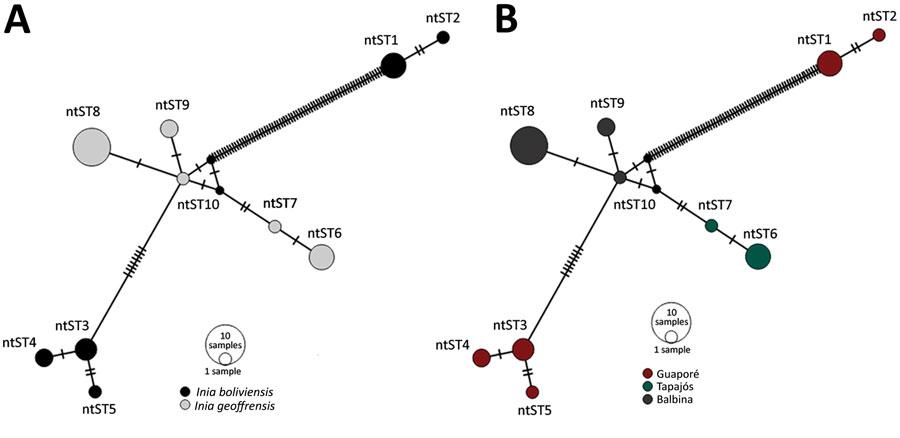Volume 28, Number 12—December 2022
Research Letter
Hemotropic Mycoplasma spp. in Aquatic Mammals, Amazon Basin, Brazil
Figure

Figure. ntST network analyses of hemotropic Mycoplasma spp. (hemoplasmas) from aquatic mammals, Amazon Basin, Brazil. We noted hemoplasmas divergence between 2 dolphin species (A) and sampling sites (B). The analysis differentiated the retrieved hemoplasmas nucleotide sequence types in 3 distinct groups: 1 group comprised all sequences obtained from Amazon river dolphins (Inia geoffrensis) from the Balbina Dam and Tapajós River; the other 2 harbored all sequences from Bolivian river dolphins (I. boliviensis) from the Guaporé River. ntST, nucleotide sequence type.
Page created: October 17, 2022
Page updated: November 22, 2022
Page reviewed: November 22, 2022
The conclusions, findings, and opinions expressed by authors contributing to this journal do not necessarily reflect the official position of the U.S. Department of Health and Human Services, the Public Health Service, the Centers for Disease Control and Prevention, or the authors' affiliated institutions. Use of trade names is for identification only and does not imply endorsement by any of the groups named above.